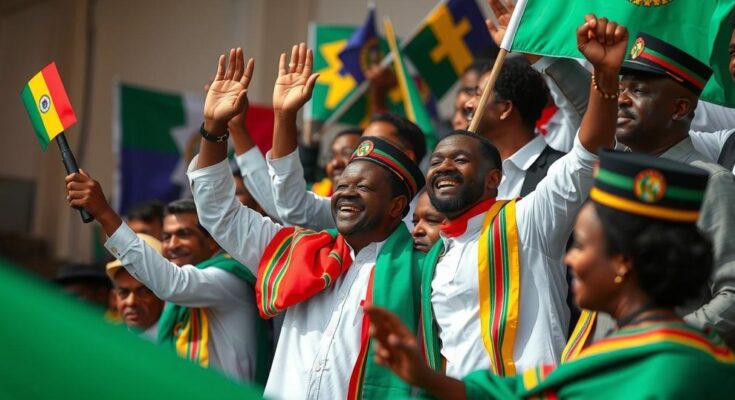The ruling Convention for the Renewal of the Comoros party in Comoros won 28 out of 33 parliamentary seats in the recent elections. The opposition boycotted the elections, citing concerns about electoral fraud. President Azali Assoumani, who has been in power since 2016, faces criticism for consolidating power through constitutional changes.
In the recent parliamentary elections held in Comoros, the ruling party, the Convention for the Renewal of the Comoros (CRC), secured 28 out of the 33 available seats, reaffirming its dominant presence in the nation’s legislature. These results were disclosed by the electoral commission, although they await approval from the Supreme Court. The election, which occurred on Sunday, witnessed a boycott from several opposition parties that have previously levied accusations of electoral fraud against the CRC.
Comoros, an archipelago comprising three islands off the eastern coast of Africa, has faced political instability marked by numerous military coups since its independence from France in 1975. President Azali Assoumani, a former military officer, first ascended to power in 1999 after a coup and has repeatedly returned to the presidency after stepping down for a term in 2006. Notably, he has been in office since winning the election in 2016 and has secured three consecutive terms. In 2018, he instituted constitutional amendments that enabled him to circumvent the country’s term limits and disregarded a prior political understanding designed to rotate the presidency among the archipelago’s islands.
The political landscape of Comoros has been shaped significantly by its tumultuous history characterized by military coups and a problematic democratic process. Since its independence from France, Comoros has struggled with governance issues, leading to frequent changes in leadership. President Azali Assoumani’s tenure has been controversial, often associated with allegations of electoral malpractice and attempts to consolidate power by changing the constitution. The opposition’s decision to boycott the elections highlights ongoing resistance to Assoumani’s rule and questions about the legitimacy of the electoral process. The political dynamics in the archipelago are further complicated by ethnic and regional divisions among its islands.
In summary, the recent elections in Comoros have solidified the ruling CRC’s dominance in Parliament, securing 28 of 33 seats. However, the legitimacy of these elections is undermined by the allegations of fraud and the boycott by opposition parties. President Azali Assoumani’s controversial political maneuvers raise significant concerns about the future of democracy in Comoros, a nation already grappling with a legacy of instability and governance challenges. The final confirmation of election results by the Supreme Court will be crucial in determining the next steps in this ongoing political saga.
Original Source: www.seattletimes.com




